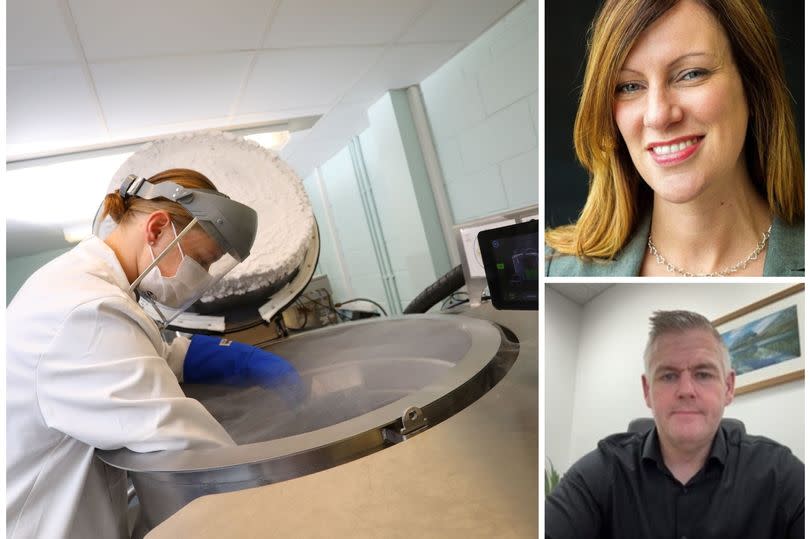Newcastle medics are at 'forefront' of radical new cancer treatment - and have already treated 100 patients

Medics in Newcastle are at the "very forefront" when it comes to a revolutionary cancer therapy that has already saved hundred of lives - and are working on being able to use it "off-the-shelf" and to treat illnesses like lupus.
Teams at the Northern Centre for Cancer Care (NCCC) at the Freeman Hospital have carried out CAR T-cell therapy since 2021, and the city's NHS trust was among the first in the country to offer this. It involves modifying someone's own immune cells to fight off cancer cells.
More than 100 adult patients with lymphoma or leukaemia have undergone the therapy here. Dr Erin Hurst, a consultant haematologist specialising in blood cancers said the treatment was "hugely life changing".
Dr Hurst added: "Previously other treatments such as chemotherapy may have failed, or for some patients there were no other treatment options, so this is bringing vital treatment and better outcomes for these patients.
"It was pioneering for Newcastle being one of the first hospitals in the country to be able to take on this innovative medicine, being at the forefront of this treatment’s rollout and delivering and expanding this for our patients."
Dr Hurst said that due to the expertise in the region, the NCCC was able to become a CAR T centre in the first wave of the therapy's rollout. She added: "We’re very much at the forefront. It’s been a really good example of how research expertise has translated in to cutting edge NHS treatment for adults across the North East."
One such patient has been Stanley Oliver, 73, of Wideopen - who received the cancer all-clear after becoming one of the UK's first patients to undergo CAR T-cell therapy. He was first diagnosed with non-Hodgkins lymphoma almost 35 years before.
The treatment involves several steps over two to three weeks, with a patients blood taken, looked after by the hospital trust's advanced therapies lab team, and then sent off to a manufacturer's lab which sees the T-cells modified. T-cells are a kind of white blood cell which can be modified to target cancer.
The cells are then returned to the hospital - and, after a block of chemotherapy, re-infused into a patient. The patient then receives inpatient monitoring, though improvements in care now mean more and more of this can be carried out while a patient is at home.
Dr Mark Jarvis, director of Newcastle Advanced Therapies, said having state-of-the-art in-house facilities was incredibly useful - and added: "We are recognised nationally and internationally as a leading centre for the implementation and delivery of advanced therapies. It’s a unique strength that we have in Newcastle that we do everything in house.
"We’re pioneering in that we have been one of the centres nationally who engaged in this early at the research stage thanks to our skills and expertise in stem cell and bone marrow transplant, and as a result we have been early adopters of new technology for our patients."
Dr Jarvis said the team in Newcastle had been able to influence national policy, and even support other hospitals to set up similar services. He remains ambitious for the future.
Dr Jarvis added: "One of aspirations is to be able to have these products as ‘off the shelf’ so you would have cells ready to use in any individual. Research intensive trusts have better patient outcomes when it comes to clinical services, and I think that is very much true in this particular area."
CAR T-cell therapy could be used for further treatment for a range of cancer and immune system disorders - such as lupus, and the Newcastle trust is working with the bio-sciences sector on new clinical trials. The hospital trust and Newcastle University are both part of Newcastle Health Innovation Partnership (NHIP) which works to turbocharge research and innovation in the city.

 Yahoo News
Yahoo News 
